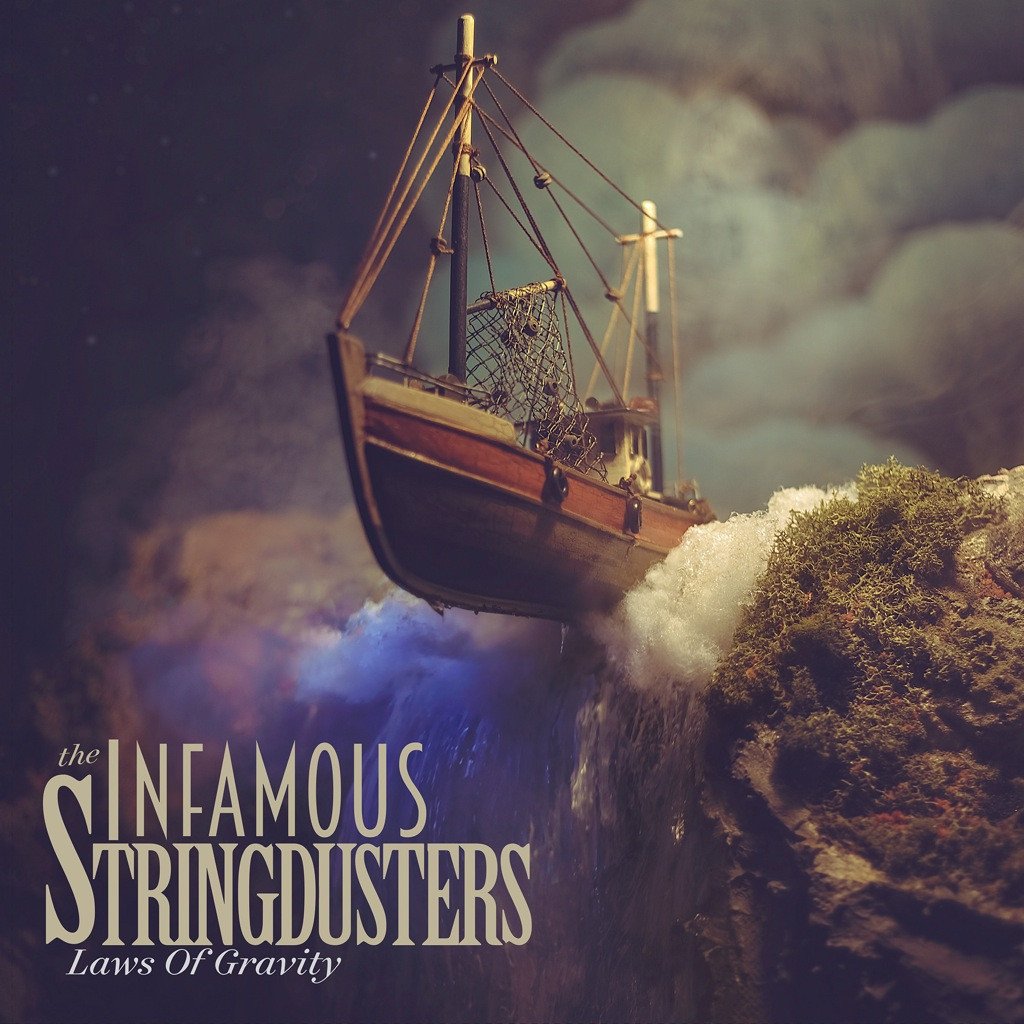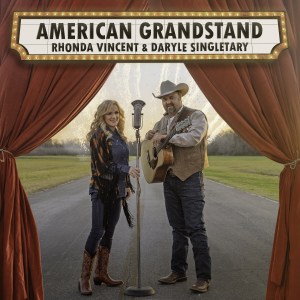Rating: 8.5/10
In my mission to cover older 2017 albums, absolutely the first one that deserves to be in line is the Infamous Stringdusters’ Laws of Gravity. Several reasons exist for this–it’s been out longer than any of the others I haven’t had time to write reviews for, going back all the way to the second week of January, I didn’t even know about it until the last week of May due to missing out on a huge chunk of January/February albums by being out of the country, and it’s a bluegrass record, not to mention a kickass bluegrass record. Remember when I reviewed Dailey & Vincent’s Patriots and Poets earlier in the year and talked about how we need more bluegrass coverage? Well, fast forward to July, and that’s the only bluegrass album I’ve covered in 2017. And it’s a shame because this one is just so damn good.
Think bluegrass sounds old-fashioned? I dare you to say that after one listen to this album; no, after one listen to one minute of the opening song, “Freedom.” I don’t know how, but the Infamous Stringdusters manage to sound at once vintage and forward-thinking all throughout the record. Think bluegrass all sounds the same? Try asserting that after you’ve heard the wonderfully bluesy tones of “This Ol’ Building” and the slightly more modern-sounding “Let me Know.” Think that yeah, the instrumentation is good, and all that fiddle and banjo is cool, but lyrics are secondary? To that, I submit the exhibits “Black Elk” and “1901: a Canyon Odyssey,” both excellent story songs. Basically, this is the album to introduce people to bluegrass with–yeah, I know I’ve only heard like, twelve albums myself at this point, but if your friend who sure, maybe can get behind some country but is bluegrass ignorant, is looking for something, refer them straight to this.
And no disrespect to Dailey & Vincent because there really were some good songs on that album, but my knowledge of bluegrass, or rather my lack thereof, was proved apparent when I heard this record and realized just how cool it could actually get. That’s an apology to bluegrass more than an underrating of Dailey & Vincent, it’s just that this 8.5 is miles better than that 7, and it sort of renders that 7 more like a 6 to 6.5. But back to the album at hand.
I mentioned the things that set Laws of Gravity apart in the world of bluegrass, but it’s only fair to the genre and to this band to be a little cliché and talk about the ridiculous instrumentation. Fiddles, banjos, mandolins, etc., all played with speed and precision, character and nuance, and, as stated, at once embodying the past but managing to stay very fresh and modern. There’s an indefinable quality to this album that makes it special and which it’s hard to put into words; this inability to accurately describe my feelings in a way that does the record true and full justice, along with the time constraints, has kept me from writing this down even after having become quite acquainted with the record. It’s something intangible that you get from hearing this music, something warm and lively and maybe just fun. It’s like, even when they’re spinning a sad tale, those fiddles just put a smile on your face, like the bluegrass equivalent of what Turnpike Troubadours manage to accomplish with songs like “Seven Oaks” and “Doreen.” I don’t think it’s something I can fully explain, but that minute of “Freedom” that you take to figure out it’s not old-fashioned will also make you fully aware of what I mean.
At thirteen tracks, this runs a bit long. There are some truly great lyrical moments here, but songs like “Soul searching” and “back Home” are generally lost in the mix for me when I listen because they possess neither great lyrics nor overly remarkable instrumentation. “Vertigo” also could have been trimmed, although it does hold my attention a bit more because it features some cooler instrumentation and more interesting chords. It’s not that any of the songs are bad, but at thirteen tracks and especially fifty-four minutes, it could have benefited from losing some of the filler. It would have made an absolutely incredible ten-track album.
As it is, this is still a very good record from the Infamous Stringdusters, and I’m just sorry it took me so long to give it a proper write-up. I don’t know much about bluegrass, and I’m not going to pretend to, but I do know good music ,and friends, this most certainly is it. You probably have already done so since I’m so ridiculously late to the party, but if you haven’t, go check this out!



